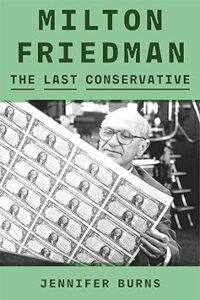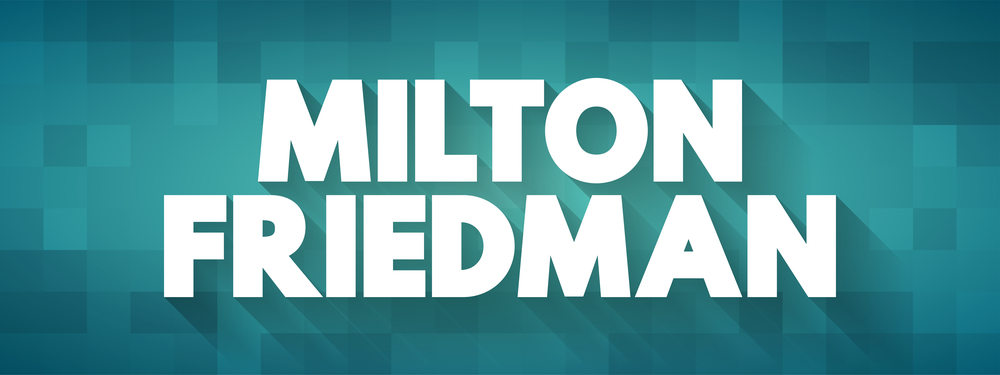Tales of a Heterodox Conservative
By Amy Willis
Milton Friedman may be of the most recognizable economists across our Econlib family, and especially so here at EconTalk. Friedman was a teacher of our beloved host Russ Roberts (as well as one of his first podcast interviewees), a Nobel laureate, a popular political lightning rod, and a best-selling author. When historian Jennifer Burns undertook her intellectual biography of Friedman, she was initially most interested in his role as a pundit. But as she delved deeper into his scholarship, she found other elements of Friedman’s life and work more interesting. How, she cam to wonder, could someone so famous be so underappreciated?

In this episode, Roberts welcomes Burns back to discuss her book, Milton Friedman: The Last Conservative. Roberts and Burns have a wide-ranging conversation about Friedman- the man and his work. Now we’d like to hear what you took away from the conversation. Leave your answers in the comments below, or use our prompts to start a conversation offline or guide your reading of Burns’ excellent book. As always, we love to hear from you.
1- Burns describes how she labored over the title of the book. Why did she ultimately choose “the last conservative?” Why does she dub Friedman the last conservative, and how was his brand different from conservatism today?
2- Both Burns and Roberts are struck by the role of women in Friedman’s life; Burns even calls them “his secret weapon.” What did you find most interesting about the stories of Friedman’s collaboration with women such as Anna Schwartz, Dorothy Brady, and Margaret Reid? (You may also be interested this Darwyyn Deyo EconLog post on economics’ “hidden women.”)
3- The conversation turns to Friedman’s legacy as an academic economist about half way through. How did Friedman manage to go from “crank” to mainstream? What does Burns regard as the most significant elements in this legacy, and to what extent do you agree with her assessment? What specific and general lessons do you think Friedman’s academic record has left for economists today?
4- How would you regard Friedman’s policy legacy- half full or half empty? What did he achieve? To what extent do you agree with Burns that his “policy ideas and orientation became influential far beyond conservatives?” What does Friedman get blamed for today, and to what extent is such blame justified?
5- The conversation concludes with Roberts musing on things he misses about Friedman. He says, “I think people who defend freedom on its own for its own sake have lost the moral high ground.” What do you think he means by this, and what does it suggest Friedman may have gotten wrong in his approach to capitalism and freedom? What are the best arguments defenders of freedom can make today?

